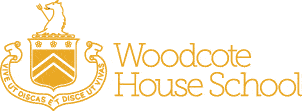Woodcote House School’s Prevent Approach
In line with the documentation published at the end of the summer term 2015, this document outlines Woodcote’s reasoning and response to the current guidelines surrounding our Prevent Duty.
Setting
With the Prevent Duty being published on at the very end of the Summer Term 2015, Woodcote is continuing to develop its policies and strategy and it is an ongoing point of discussion with the SMT (see agenda and minutes) and the Advisory board.
When reading the school’s policies, practices and views laid out below, we have borne in mind the age of our children within the school and the backgrounds from which they come. Thus we feel that the risks of being drawn into terrorism for any of our children is incredibly low. However, we acknowledge fully that we have a duty of education and care, both in and out of the classroom, to ensure they grow up to be tolerant and informed individuals who can make reasoned judgements on any situations which might confront them. To this end, our RE and current affairs teaching, our tutors groups and our assemblies and chapels encourage an atmosphere of tolerance and anti-discrimination.
Training
All SMT members plus the DSL are to undergo training online in the Channel or other appropriate programme. Thus senior and key members of staff have an awareness of the how to identify and manage pupils who might be exhibiting signs of extremist attitudes and activity
Risk Assessment
- Through RE, current affairs, tutor groups, assemblies, chapels, e-safety training and our general pastoral care the school feels very strongly that it is protecting the children in our care from being drawn into radical activity.
- We have carefully considered the risk to our children and deemed it to be very low indeed.
- We endeavour to ensure all visiting speakers are suitable and present in a way that is in line with our Prevent duty. All visiting speakers are met and hosted at all times by a member of staff.
- School bodies allow pupils to raise concerns and issues whilst experiencing democracy in action.
September 2016



